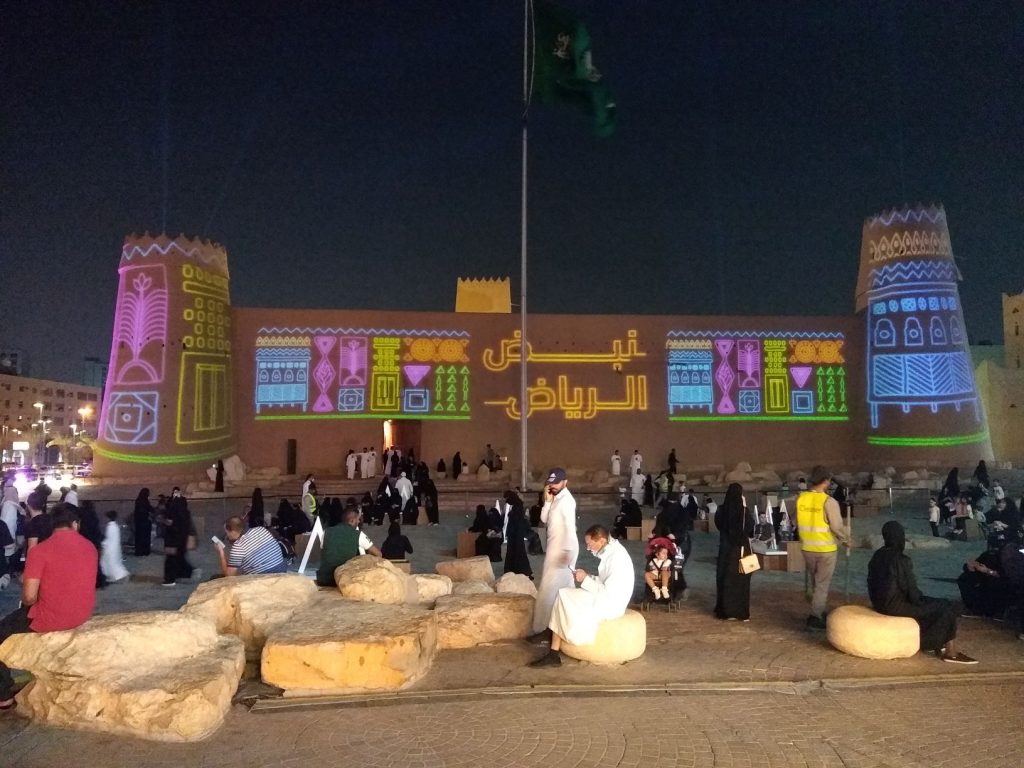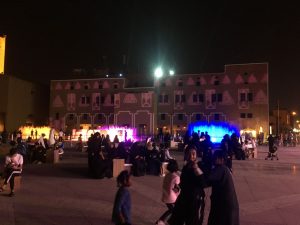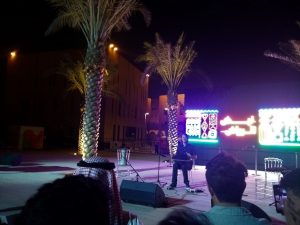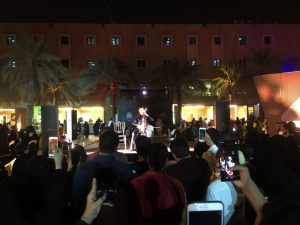Riyadh – Saudi Arabia is changing fast in the wake of the pluriannual plan for opening and diversifying its economy called Vision 2030. This ANBA reporter was in the country in late October to accompany president Jair Bolsonaro’s visit and could see some of the recent changes at first hand.
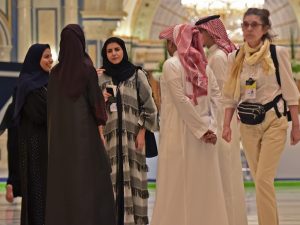
Upon landing at King Khalid International Airport in Riyadh, one can see a significant number of women working, which was unusual until very recently. It’s the same in hotels, shops, restaurants, and public bodies and events. The last time this reporter had been in the Saudi capital in 2017, the women’s presence in job positions was much less apparent, and during ANBA’s first visit to the Arab country in 2008, it was nearly nonexistent.
This change in the scenario reflects a series of policies adopted in the last few years aiming at increasing the women’s participation in the economy, based on the idea that it would not be economically sustainable to keep almost half of the Saudi population out of the labor market.
They are measures that give women the right to do things on their own, without the need of a permission from a male guardian, such as traveling abroad, starting businesses, attending stadiums and driving.
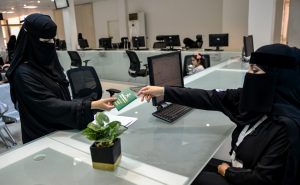
The authorization to drive created a change that can be easily seen on the streets. A modern city, Riyadh is made for cars, much like Brasília in that sense, and wherever you look, you can see women driving.
Saudi Arabia is an extremely conservative country in customs, which is clear by its strict dress code. Women only leave their homes with their hair covered and an “abaya” cloak over the clothes. But now, one can see foreign women in public spaces without this traditional outfits.
In several occasions when this ANBA reporter had been in Saudi Arabia, a constant was the Committee for the Promotion of Virtue and the Prevention of Vice, colloquially termed Religious Police or Haia.
A “mutawa” – as its agents were called – was commonly seen telling a woman to cover their heads, ordering shops to close during prayer times or telling an idle man to go to a mosque in those times. This reporter didn’t see any of that during his last trip, despite going to hugely crowded places and events.
Leisure
Most impressive, tough, was the bloom of open leisure and entertainment events, which was nonexistent until recently. From October 11 to December 15, the city is holding the Riyadh Season, a festival with several different events across 12 thematic areas throughout the capital. They include concerts, sports events, circus acts, exhibitions, food events, theater, movie screenings, and several other activities.
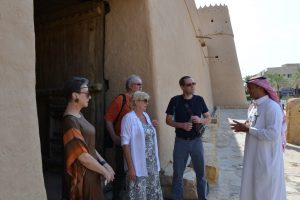
This reporter was in one of the thematic areas right in the middle of the city in front of the old Al Masmak fort and beside the Deera Square, called “Nabd Al Riyadh,” loosely translated as “Riyadh’s Pulse.” A festival of colorful lights illuminated the fort and the other surrounding buildings, a musician played Eastern-inspired songs on one side, while a performer played the cello on the other and artisans sold their pieces behind stands and the audience enjoyed the street food.
It’s worthy mentioning that, according to the religion followed in Saudi Arabia, men and women that are not related must not interact, so gender segregation was common in several places like restaurants and malls. But on that square and other places visited by this reporter in late October, this separation was gone. Men and women, young couples and children shared the public space.
(The story continues after the photo gallery)
Riyadh Season is part of a series of festivals that Saudi Arabia has held since the beginning of the year, amounting to 11. Last Friday (22), another one, the Al-Diriyah Season, has started with the first phase of the 2019-20 Formula E World Championship for electric cars. Diriyah is a historical city just outside Riyadh and the Season program will be focused on sports.

Besides offering leisure options for the locals, the Saudi Seasons aim at drawing foreign tourist to the country, another of the Vision 2030 goals. Until recently, people could only visit Saudi Arabia for business or undertaking the pilgrimage to Mecca, but now the government started issuing tourist visas and facilitating the issuance for several countries. Brazil and the Arab country even signed a visa issuance facilitation agreement during Bolsonaro’s visit.
According to information from the Saudi General Entertainment Authority (GEA), the events of Riyadh Season has drawn over 6.5 million visitors so far and at least 100,000 foreign tourists.
Translated by Guilherme Miranda



